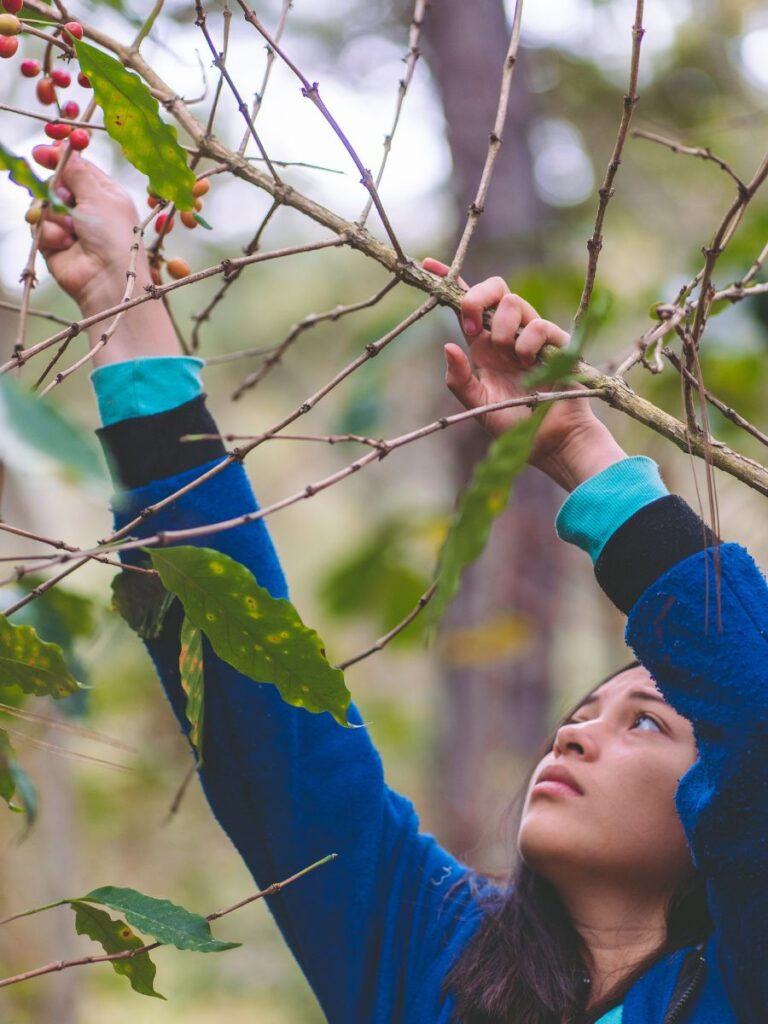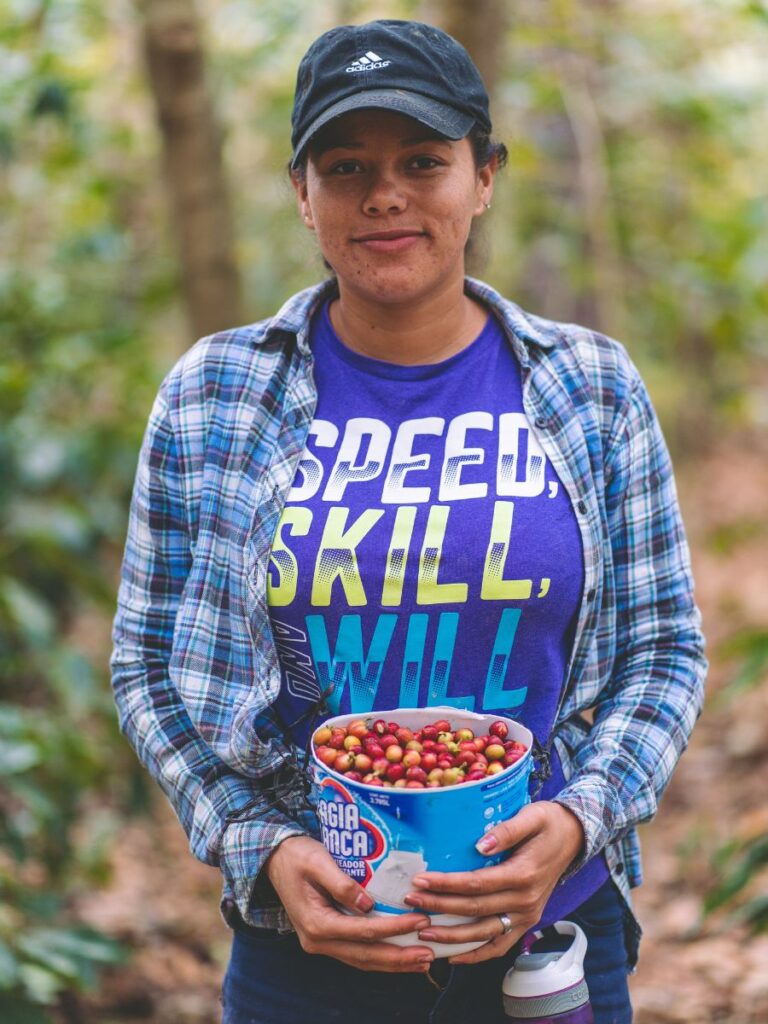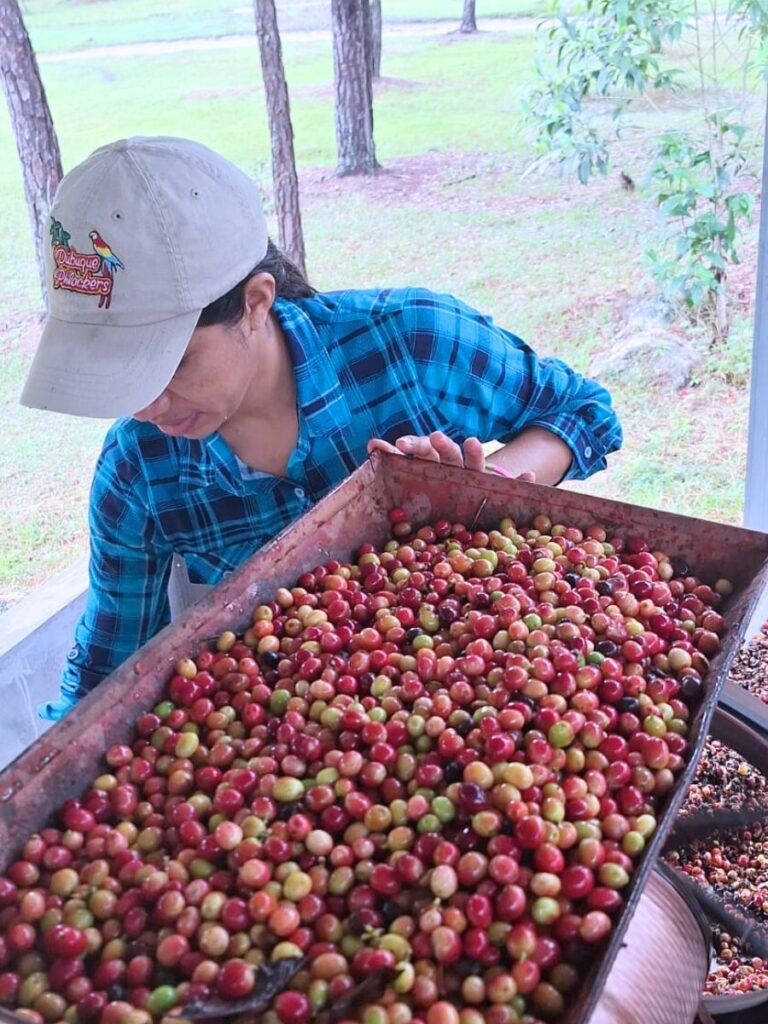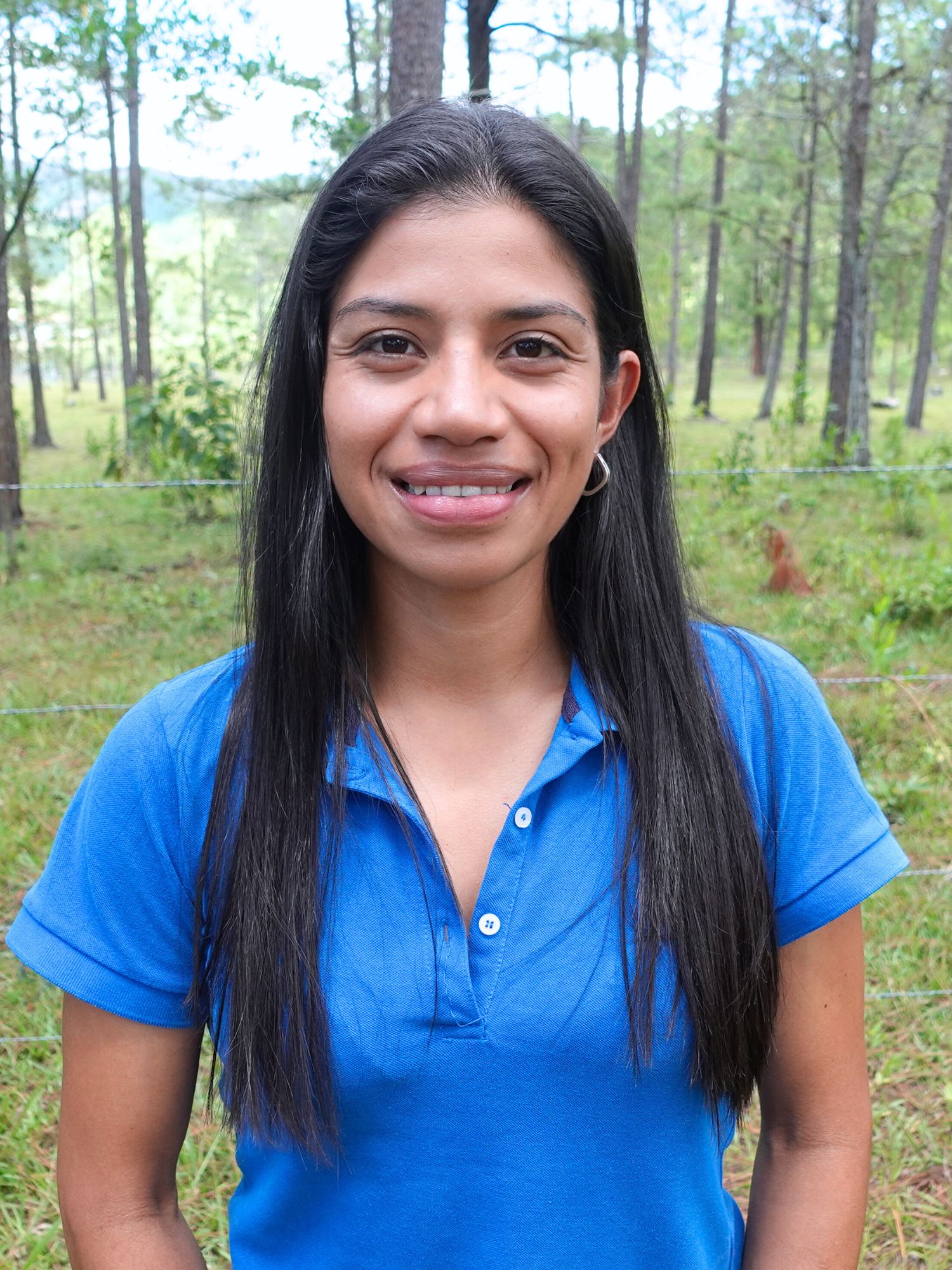Behind every cup of coffee is a story of growth. First, a coffee seed is planted. For the next three to four years, that seed matures into a tree, being cared for through manual weed control, organic fertilization, and other practices. Beautiful white flowers start blooming on the plant, and then fruit begins to grow. Once the fruit has ripened into an amazing Christmas red color, it is ready to be harvested. The harvesting stage begins in mid-October and lasts through February. At The Leadership Center, our coffee beans are harvested one by one by the hands of students, staff, and visitors. The pulp from the fruit is then extracted by a machine, dried, and roasted to perfection for consumption on and beyond campus.
Growing up, my family owned a small cash coffee farm that paid for the schooling of me and my siblings. As is true for most coffee farmers in Honduras, we never had the opportunity to try our own coffee. If we wanted coffee, we would buy it at the nearby pulperia. Because of this, when I started working at TLC, I was very excited to learn that we grow coffee largely to provide for our campus community. There is something so special about picking your own coffee and enjoying a cup later with those who were with you for the harvest.
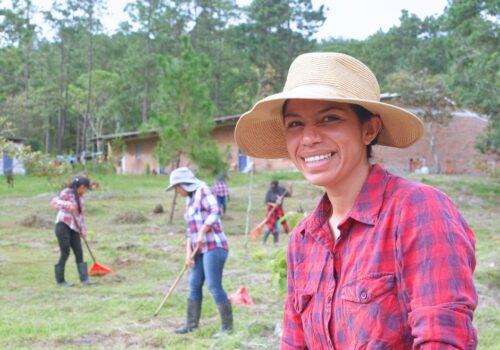
Before coming to TLC, I went to university to study agronomy, which is the science of soil management and crop production. After earning my degree, I spent years pursuing various agricultural projects with my family and on my own land. But since coming to TLC, I have deepened my knowledge of sustainable agriculture practices. I have come to understand that sustainable agriculture requires time, dedication, research, innovation, and continuous learning. As Agriculture Lead, I have opportunities to develop systems that encourage the long-term agricultural success of our campus. Above all, I have the privilege of sharing my passion for sustainable agriculture with the young women at TLC.
Throughout Honduras, a large portion of women are involved in the entire coffee process, from planting to harvesting. However, opportunities to become equal investors in the coffee process are few and far between. Fortunately, several women’s cooperatives are starting to emerge around Honduras that are committed to empowering women in the coffee industry. Organizations such as the Honduras chapter of the International Women in Coffee Alliance, AMUCAFE, are promoting agricultural possibilities for women by connecting them to training, markets, and other valuable resources.
Behind every cup of coffee is a story of growth, not just of a plant but of the people who nurture that plant and gain lasting skills along the way. You might be wondering—why should I invest in TLC’s coffee farm? By supporting our coffee production, you are helping our students, campus, and organization continue to grow and work toward becoming self-sustaining. As our farm expands, so does our knowledge of sustainable agriculture practices and our appreciation for every warm, homegrown cup of coffee.
This piece was edited by Brielle Perry.
What if you could transform your morning cup of coffee into a lasting gift that would provide valuable agricultural and economic opportunities for women in rural Honduras? Leading up to Giving Tuesday, we ask you to consider giving toward the expansion of our campus coffee farm, which is a special and crucial part of our agricultural programming. Click below to learn more.
